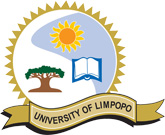
University of Limpopo is a public university in the Limpopo Province, South Africa.
This South African university's history reflects the nation's own journey towards inclusivity. Established in 2005, it emerged from the merger of two separate institutions – the University of the North and the Medical University of South Africa (MEDUNSA). This merger held particular significance as the University of the North, nicknamed "Turfloop" after its location, was founded in 1959 under the apartheid regime's policy of segregated education. Established for Black South Africans, it served as a vital center for learning despite the limitations of the time.
MEDUNSA, on the other hand, had a different origin story. Founded in 1976, it focused on medical training for Black South Africans who were previously excluded from mainstream medical education. The merger of these two institutions in 2005 symbolized a step towards dismantling the educational inequalities of the past. It brought together the strengths of both – Turfloop's well-rounded curriculum and MEDUNSA's specialized medical expertise – creating a comprehensive university that catered to a broader range of disciplines. However, the initial years of the merged university were not without challenges. The physical distance between the two campuses, located in different provinces, presented logistical hurdles. Despite these initial difficulties, the university persevered, working towards integrating its academic programs and fostering a unified student experience.
In 2015, a significant chapter unfolded. MEDUNSA was re-established as an independent institution, the Sefako Makgatho Health Sciences University. The University of Limpopo, as it's now known, continued to operate from its campuses in and around Polokwane, carrying forward the legacy of the merger. This move allowed for a more focused approach to medical education at Sefako Makgatho and for the University of Limpopo to further develop its own identity as a multi-disciplinary university.
Looking forward, the university is likely focused on furthering its research endeavors. By fostering a strong research culture through its centers and institutes, it aims to push the boundaries of knowledge and contribute to solving real-world problems. Additionally, its commitment to community engagement suggests a focus on using its expertise to improve the lives of people in the Limpopo Province and beyond. This multi-pronged approach ensures the university remains a leader in South African education.
University Profile
Get a quick snapshot of the university's key details.
| University Name |
University of Limpopo |
| Acronym |
UL |
| Year Established |
2005
|
| Governing Type |
Public
|
| Student Body |
Co-education
|
| Highest Degree |
Doctorate
|
| Campus Type |
Urban
|
Location
The university is located in Sovenga, Limpopo. Find the address of the university below.
| Address |
C/O R71 Tzaneen Road and University Street Mankweng Township, Sovenga, Limpopo, South Africa |
Contact
Connect with the university easily! Find their contact details.
| Phone |
+27 (15) 268 9111
|
| Fax |
+27 (15) 267 0152
|
| Website |

|
| More Links |
|
Admission Info
Find information below on admission to University of Limpopo.
Scholarship and Financial Aids
There is no information found on scholarships or financial aids offered by University of Limpopo. You may like to visit their website for more details.


